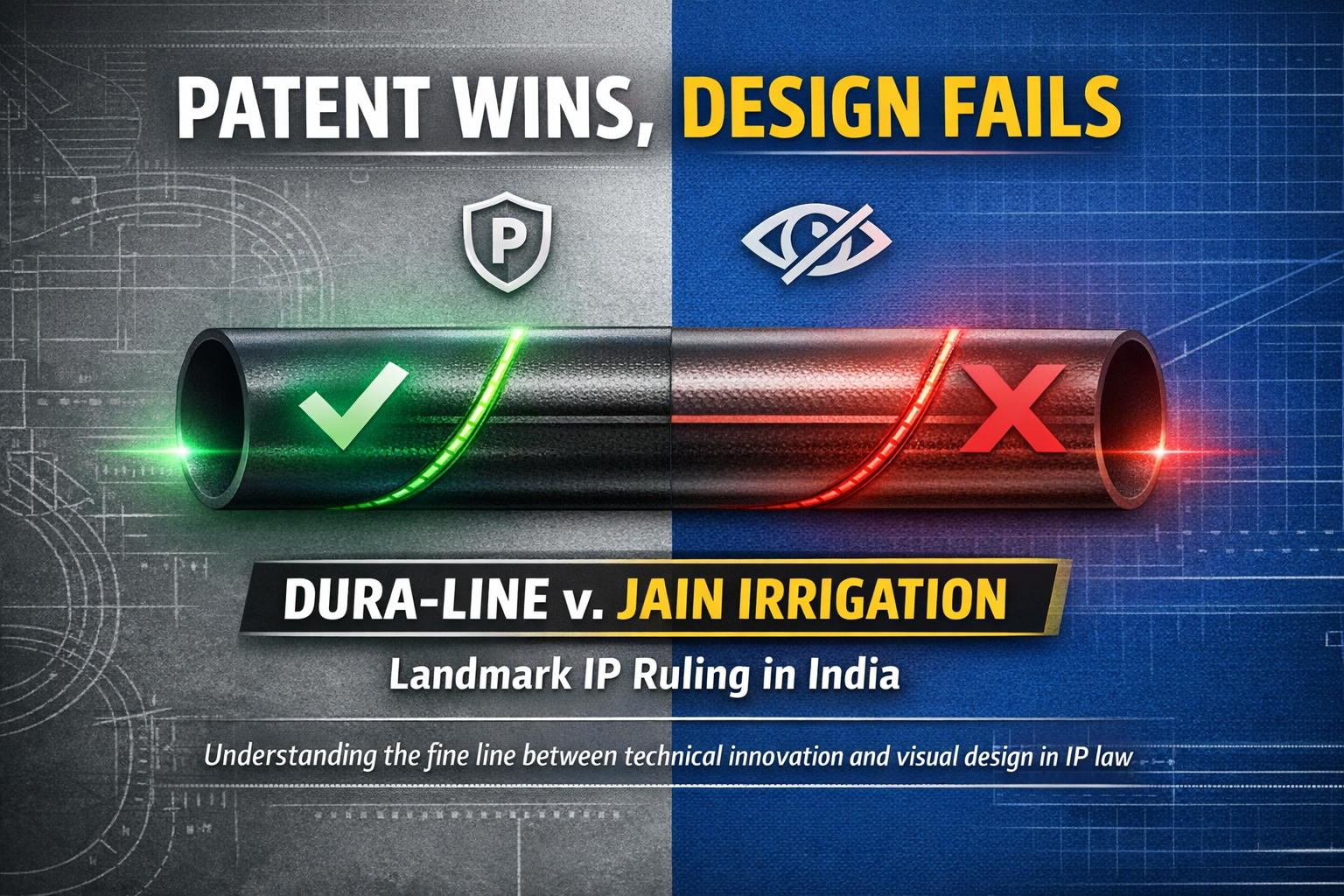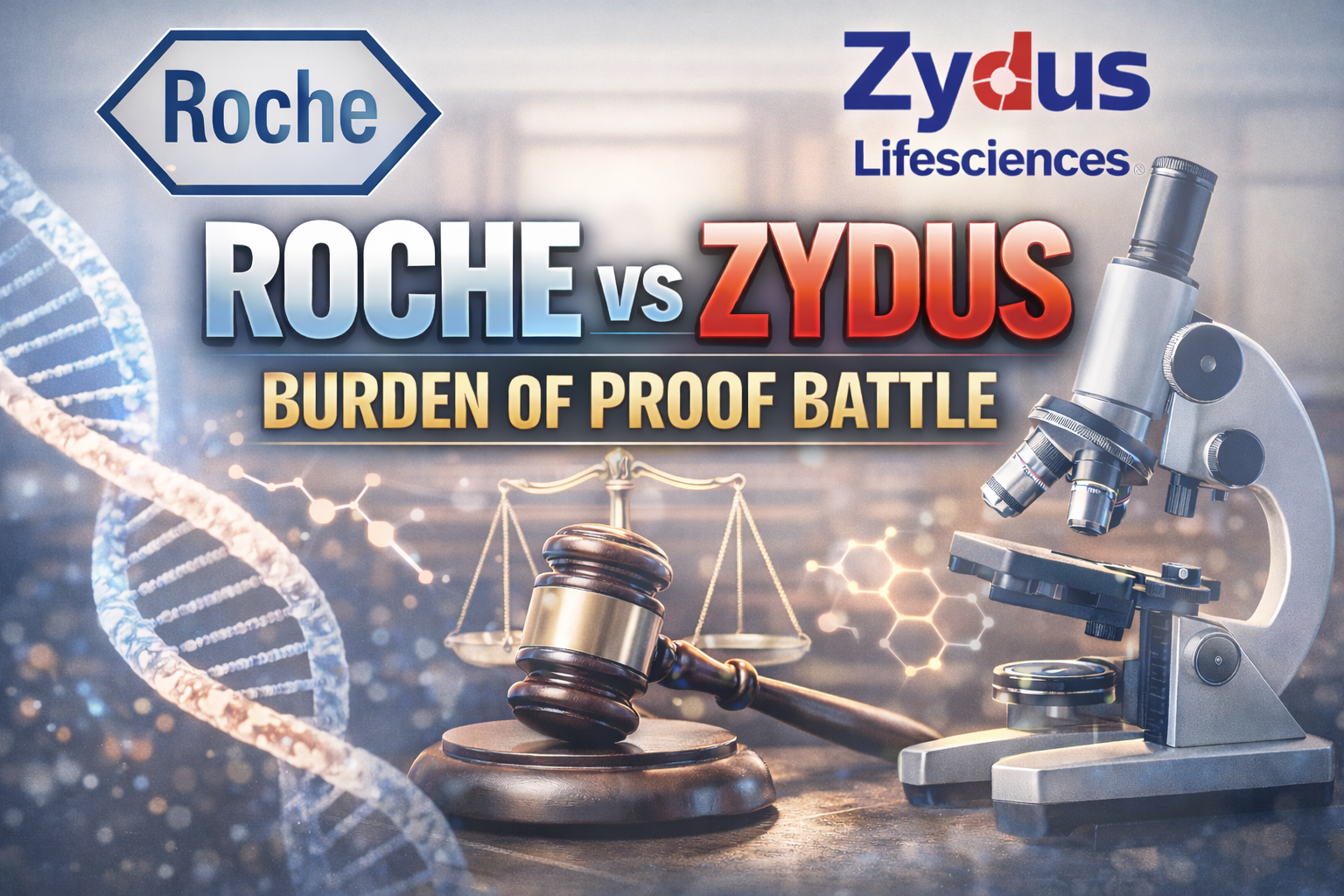
UNDERSTANDING THE LEGAL MECHANISMS OF PRIMA FACIE EVIDENCE AND BALANCE OF CONVENIENCE
Legal cases often hinge on evidence and the careful weighing of competing interests. Among the various types of relief available, interim injunctions or temporary injunctions are frequently sought to address urgent situations where a party seeks immediate legal remedy before the main case is decided. However, for such injunctions to be granted, two crucial elements must be established: prima facie evidence and the balance of convenience. In this blog, we dive deeper into the importance of these concepts, examining their relationship and practical application in case law. Let’s begin by understanding what each element means and how they contribute to granting an injunction.
WHAT IS PRIMA FACIE EVIDENCE...?
“Prima facie” is a Latin term that translates to “at first sight” or “on the face of it.” In a legal context, it refers to evidence that, unless rebutted, it is sufficient to establish a fact or a case. It provides a preliminary assessment of the issue at hand. Prima facie evidence must be enough to convince the court that the applicant has a legitimate and meritorious case worthy of further legal scrutiny. In the context of granting an interim injunction, the applicant needs to present a prima facie case. This means they must demonstrate that there is a sufficient likelihood of success at the merits of their case when it proceeds to trial. Prima facie evidence does not need to prove the case beyond all doubt or be conclusive; it only needs to make it more probable than not that the applicant will eventually prevail.
The key feature of prima facie evidence is that it establishes an issue of law or fact that warrants the attention of the court. It is not a final determination of the case, but it provides enough reason for the court to consider granting temporary relief while the matter is fully litigated.
For example, in a case where a party claims to have the exclusive right to certain property but is facing imminent trespassing by another party, the prima facie evidence might include proof of ownership or a registered lease agreement. The evidence, unless countered, is enough to establish the party’s rights over the property and justify seeking an injunction to prevent further trespassing.
THE ROLE OF THE BALANCE OF CONVENIENCE:
Once prima facie evidence is established, the next step is determining whether the balance of convenience justifies granting the injunction. This principle is centered on a comparative analysis of the harm that would be suffered by the applicant if the injunction is not granted versus the harm that would be caused to the respondent if the injunction is granted.
The balance of convenience considers various factors, such as:
Urgency and Severity of Harm to the Applicant: Will the applicant suffer irreparable harm if the injunction is not granted immediately? For instance, if the applicant is in a business dispute and losing customers to a competitor, the court may consider whether the harm caused by the competitor’s actions cannot be adequately addressed by monetary damages.
Harm to the Respondent: What harm will the respondent face if the injunction is granted..? If the injunction severely disrupts the respondent’s business or rights, the court will weigh that against the applicant’s need for urgent relief.
Adequacy of Other Legal Remedies: The court must also consider whether other legal remedies, such as monetary damages, would be adequate to compensate the applicant for their harm. If the harm is irreparable, meaning it cannot be fixed by monetary compensation, then the balance may tip in favor of granting the injunction.
Likelihood of Success: If there is a strong prima facie case (i.e., the applicant is highly likely to succeed on the merits of the case), the court is more likely to grant an injunction to preserve the status quo until the case is decided. Conversely, if the likelihood of success is weak, the balance of convenience might not favor granting the injunction.
The balance of convenience is particularly critical in cases where both parties may suffer harm if the court grants the injunction. In such instances, the court must analyze which party’s harm is more significant or irreversible. The applicant must demonstrate that they will suffer greater harm if the injunction is denied than the harm the respondent would suffer if the injunction were granted.
Intellectual property cases where a company claims that its patented product is being infringed upon, the applicant (the patent holder) may argue that the ongoing infringement will cause irreparable damage to their market share, goodwill, or brand reputation. In contrast, the respondent (the alleged infringer) may claim that the injunction will cause significant disruption to their business operations, particularly if the infringement was unintentional or could be remedied through payment of damages.
JUDICIAL APPROACH TO PRIMA FACIE EVIDENCE AND BALANCE OF CONVENIENCE:
In practice, prima facie evidence and the balance of convenience are interdependent elements that courts rely on to determine whether an interim injunction should be granted. Courts do not grant an injunction solely based on prima facie evidence. Rather, prima facie evidence serves as the foundational basis for establishing that the applicant has a valid claim, warranting judicial intervention in the form of temporary relief. However, the balance of convenience is the key consideration that ultimately determines whether the applicant should be granted urgent relief.
CASE LAW JUDGMENTS HIGHLIGHTING PRIMA FACIE EVIDENCE AND BALANCE OF CONVENIENCE:
- American Cyanamid Co. v. Ethicon Ltd. (1975) 2 All ER 504 (House of Lords) This landmark judgment deals extensively with the issue of granting interim injunctions and the balance of convenience. In this case, the House of Lords outlined the key principles for granting interim injunctions. The judgment emphasized that the court should consider whether:
- There is a prima facie case.
- The balance of convenience favors the grant of an injunction.
- Whether damages would be an adequate remedy.
- Whether the harm caused to the applicant outweighs the harm caused to the respondent.
While the applicant in this case did provide sufficient evidence, the court considered that if damages could provide an adequate remedy, an injunction would not be granted.
- Dixon v. Times Newspapers Ltd. (2007) 2 All ER 920 (Court of Appeal) In this case, the Court of Appeal dealt with the issue of whether prima facie evidence and the balance of convenience justified the grant of an injunction against a publisher. The court reaffirmed the principles laid out in American Cyanamid and stressed that the applicant must demonstrate that there is a legitimate issue to be tried and that the balance of convenience clearly favors granting the injunction. The judgment made it clear that the balance of convenience would typically favor the applicant where they were likely to suffer greater harm from a denial of the injunction than the harm the respondent would suffer from its grant.
CONCLUSION
The court’s decision to grant or deny temporary relief, such as an injunction, is contingent on the balance of convenience and the existence of prima facie evidence. The applicant must present enough evidence to demonstrate that there is a valid claim, and the court must assess whether the harm to the applicant outweighs the harm to the respondent. While prima facie evidence provides a foundation for the claim, it is the balance of convenience that ultimately determines whether the applicant is entitled to immediate relief. Courts must ensure that any temporary injunction or relief granted does not unfairly disadvantage the respondent or cause unnecessary harm. The careful evaluation of both these principles ensures that the legal system strikes a fair balance between granting urgent relief and preventing unjust outcomes for the parties involved. In summary, while prima facie evidence presents a reasonable case to justify judicial intervention, the balance of convenience ensures that the court’s actions are equitable and serve the best interests of both parties while avoiding undue hardship. This dual framework forms the bedrock of interim injunctions and temporary relief in common law systems worldwide.




Leave a Reply